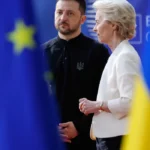The United Arab Emirates’ orchestrated smear campaign, known as “Abu Dhabi Secrets,” aimed at discrediting Qatar and the Muslim Brotherhood, has drawn widespread attention and criticism. This campaign has raised questions about the UAE’s motivations and objectives in disseminating misinformation. In this investigation, we explore the nuances of this operation alongside Sébastien Boussois, an expert in political science with a specialization in the Middle East and the author of “The United Arab Emirates to Conquer the World” (2021).
The UAE’s Web of Influence and Misinformation
The UAE’s smear campaign comes as no surprise to Boussois, who notes that the country has long been cultivating a web of influence and misinformation. The UAE strategically presents itself as the epitome of Western values, such as openness, tolerance, freedom, and secularism, to enhance its global image. This narrative has been propagated effectively through various institutions, media outlets, and connections with decision-makers and stakeholders.
Unraveling the Desired Objective
The primary objective behind the UAE’s disinformation efforts is to portray itself as a Western-friendly nation, while diverting attention from its own political agenda. Despite its image of leisure, westernization, and prosperity, the UAE’s actions reveal a darker side, involving political interference in the Arab world, use of mercenaries, and involvement in conflicts like the war in Yemen.
The Long-Standing Rivalry with Qatar
The smear campaign’s focus on Qatar can be traced back to long-standing tribal rivalries among Saudi Arabia, the UAE, and Qatar. These rivalries were exacerbated when Qatar declared independence in 1971, leading to heightened tensions between the countries. Qatar’s shift towards Iran further strained relations with Saudi Arabia and the UAE, as it created strategic and economic implications, considering their shared gas field with Iran.
The Arab Spring and Divergent Visions
The Arab Spring in 2010 and 2011 exposed divergent visions for the Middle East. While Qatar supported movements seeking democratic alternation, often associated with Islamist movements, the UAE took a counter-revolutionary stance, supporting existing dictators and portraying itself as a bulwark against political Islam and potential destabilization.
Religion as a Propaganda Tool
The UAE’s criticism of Qatar’s links with the Muslim Brotherhood is seen more as a propaganda tool rather than an accurate representation of Qatar’s ideological alignment. Qatar’s initial support for political Islam during the Arab Spring was a strategic choice, driven by the absence of other viable alternatives at the time. However, the UAE oversimplified this stance to label Qatar as a supporter of Islamism.
Qatar’s Distancing from the Muslim Brotherhood
Boussois argues that Qatar never truly embraced the core beliefs of the Muslim Brotherhood. Over time, Qatar has leaned towards the Western model, seeking a less conservative society. Claims about Qatar’s intentions to Islamize Europe have been dismissed as unfounded, highlighting attempts to maintain the false notion that “Qatar equals the Muslim Brotherhood.”
Consistency in Addressing Political Islam
Boussois emphasizes the need for consistency in addressing political Islam. He points out that the majority of radical mosques in Belgium, including the infamous one in Molenbeek, were financed by Saudi Arabia, a country known for promoting Wahhabism and Salafism. To combat the danger of political Islam, all its manifestations, including those propagated by Saudi Arabia and the UAE, should be scrutinized.
The UAE’s smear campaign against Qatar and the Muslim Brotherhood reveals a complex web of geopolitical interests, rivalries, and propaganda. It highlights the importance of critically evaluating information and narratives propagated by various nations. As the global stage continues to evolve, understanding the nuances of political maneuvering and misinformation becomes crucial in shaping informed perspectives.






